
All present
Meeting once a month instead of twice means that monthly meeting is extra long – this one was 3 hours without the Executive Session. Next meeting will also be on the Committee’s Summer Schedule on August 17.Motions2016/287, 2016/288, 2016/289, 2016/290 (Mayor Kennedy) All four motions requested reports from the Superintendent regarding Lowell High. The reports request will be to review curriculum needs and plan for curriculum in tangent the design of Lowell High. Since an architect has been selected and named, consideration of how the building is configured to address curricular needs is timely.
Motion 289 requests a report in response to DESE’s recently published information naming Lowell’s expulsion and suspension rates (along with several other school districts). The DESE report and news release can be found
here. Ms. Durkin assured the committee that discussions are already underway to better understand and address this report.
2016/296 (Mr. Gignac) Request superintendent provide full year-end financials to the entire School Committee prior to year-end audit.
2016/297 (Mr. Gignac) Requests report on opiate prevention program/awareness programs.
2016/301 (Ms. Martin) Request status on Central Office hiring along with a current organization chart reflecting changes made in Central Office personnel due to retirements and resignations.
2016/305 (Mr. Gendron) Request Facilities Subcommittee name Butler School Auditorium for Maryalice Foley.
2016/306 (Mr. Gendron) Request Facilities Subcommittee establish quarterly meeting with the Lowell High Project Manager (Skanska OPM).
SubCommittee ReportThe July 13th Joint Policy and Student Services subcommittees met to revise School Policy for students with severe allergy and to address Mr. Hoey’s motion suggesting the creation of an early candidate pool for Lowell residents seeking employment in the Lowell Public Schools.Ms. Laura Ortiz spoke on behalf of 200-plus students who have
life-threatening reactions to allergens other than food. The Joint Committee is in favor of revisions suggested to the Lowell Public Schools Handbook which will include non-food allergies such as latex, insect bites/stings, and other allergens that can be life-threatening. The Joint Committee proposed the changes to the Handbooks and have requested their adoption. This was accomplished in Item
2016/299.A second topic for this joint committee was Mr. Hoey’s motion regarding creation of an early
hiring pool for Lowell residents seeking employment in the Lowell Public Schools. With the addition of language specifying that the Lowell residents needs to be qualified and certified in the area of the open position, Lowell residents are to be granted an interview.
Reports of the SuperintendentThere were 12 reports from the Superintendent addressing motions and regularly scheduled reporting (Personnel, Motions Report). Additionally, the report regarding the possibility of reconfiguring school zones is progressing as a Task Force consisting of parents, school personnel and community members is being formed. This group will meet beginning in late August or early September with the giant task of exploring rezoning the school district while respecting the Desegregation Order as well as being mindful of the capacity issues. Dr. Khelfaoui expressed that this process will be a multi-year phase in so as to respect the needs and desires of current LPS families as well as being mindful of the factors such as capacity that may be affected. Three reports received extra attention.In response to Connie Martin’s motions requesting information about
2015-16 educator evaluations, Anne Sheehy spoke to the process and the resulting reported data (see packet). As reported, any licensed educator in Massachusetts must be evaluated using the Commonwealth’s Teacher Evaluation Protocols. Currently Lowell Public Schools focuses on 15 elements (out of 30) during the evaluation cycle. The resulting evaluation data shows 12% are Exemplary, 86,7% Proficient, 2% Needs Improvement, and less than 1% Unsatisfactory. As Ms. Sheehy pointed out, this is phenomenal and further gives credence to the high quality of the educational staff in Lowell.The process of educator evaluation applies only to licensed staff at this time – from Superintendent to Teachers, Nurses, School Therapists and other support personnel, all go through the same process. Only licensed educators are evaluated using this process; those personnel who do not need Massachusetts licenses in order to work in the schools are not.
A lengthy discussion accompanied this report as this is a fairly recent initiative that has come through the U.S. Department of Education via DESE at the state level. It is quite involved and unless you have been through the process – and I have – it is difficult to understand. I will write a more thorough explanation in an upcoming blog. The short story is that any licensed educator undergoes a two-year evaluation cycle whereby goals (personal and student-based) are set, data-evidenced progress checked (Formatives) and end-of-cycle achievements proven (Summatives).A second longer discussion was reserved for Item
2016/300, the Year-to-Date Budget Report. Mr. Frisch (CFO) updated the Committee as to outstanding Purchase Orders amounting to about $3.45 million as of July 20. On July 29, the City will close the books on Fiscal 2016 and cancel any outstanding purchase orders as of the final run on that date.The School Department’s Finance people have preliminarily spoken with the City about creating a Suspense Account equal to the totality of those outstanding Purchase Orders so that vendors can be paid even though their invoices may not arrive before the City closes the books. That way the June Purchase Orders still awaiting vendor billing for Fiscal 2016 will be fulfilled through the 2016 budgeted amounts.Another point made during the discussion of this report was how there could be a “fifth quarter” payment for the Circuit Breaker (money for extraordinary Special Education costs provided by the Commonwealth). There was some confusion about how to handle these funds (include in Fiscal 2016 and then transfer to Suspense Account?) and whether the proposition from Central Administration would have financial implications for Fiscal 2017.The inclusion of a “5th quarter” Circuit Breaker payment from the Commonwealth appears to be a point of confusion. Apparently the Fiscal 2015 fourth quarterly Circuit Breaker payment was made in July last year which, with new administration is several key positions, resulted in the funds being allocated to Fiscal 2016 instead of Fiscal 2015. There was some question as to why the auditor did not discover three (not four) such deposits in 2015. Through this discovery, there is a proposal under consideration to use the fifth quarter, or windfall, to offset the loss of the 2017 Kindergarten Grant funds, and thereby preserve 17 paraprofessional positions for Fiscal 2017.
(Those who follow the state budget will recall that Governor Baker vetoed the Kindergarten Grant funding during the state budget process. The loss of the state budgeted Kindergarten Grant could potentially result in 17 paraprofessionals being displaced or laid off. This is one of the ways LPS is proposing to preserve those positions. The final decision on how to make up the loss in funding will be voted on in August at the next Committee meeting, 8/17.)Finally, an additional long discussion took place regarding sizeable negative balances in several line items. Mr. Frisch noted, the City takes a charge for Health Insurance (monthly) and Dental Insurance (bi-yearly?) and when doing so, some of the accounts impacted turn negative. When those charges occur, the line item charges may result in negative balances showing on the financial reports. As far as the City and City Auditor are concerned, the bottom line, not the specific line item balance, is what is important.Several School Committee members expressed discomfort with that process and suggested that the School Committee may need to consider meeting to make the financials more reflective of what actually happens with these costs/charges and transfer of funds.The third report receiving extra attention was the
Superintendent’s Evaluation. Dr. Khelfaoui took the School Committee step-by-step through his Formative Evaluation evidence (
remember, that is the progress-to-date evidence) and is soliciting the current Committee and the past Committee’s input into his one-year Formative evaluation (
next year is the Summative Year in the Superintendent’s two-year evaluation cycle). The School Committee members will meet with and complete their piece of the evaluation prior to the August 17 meeting; Mayor Kennedy will summarize these and the Formative Evaluation and any revisions to the Superintendent’s goals will result. This information is done in public, not through Executive Session.
New BusinessThe salary adjustments for unaffiliated staff were approved with a request from Mr. Gignac to provide the new job description for one of the positions. Custodial rate approved.Meeting adjourned from Executive Session. Meeting Packet can be found
here.
 It is back-to-school time here in the City in which I taught for nearly 30 years. You can sense the anticipation in the breezes that flow down the Merrimack. There is an almost unidentifiable change to the air. We are changing seasons; we are changing routines.I loved the first day of school when I was teaching. Make no mistake about it, those first days - and oftentimes weeks - are exhausting as teachers and their new students work to find common ground and to build a community. The first day, the day when everyone wears a little vulnerability in anticipation of new things, the first day is special. And for every teacher who starts rebuilding a new community of learners today, I wish you the best.My mind floods with the memories of some of those wonderfully special students who made the 30 first days that I was privileged to be part of special. So many unique personalities! You kids have enriched my life in ways I could never have imagined.In 1990, I was returning to the classroom after a summer of health crises. I remember the exhaustion that year was not from teaching, but from treatments. Dragging my sorry self into a classroom filled with second graders was not only teacher-exhausting, it was physically and mentally exhausting. Yet every single morning, one of my bubbly, precious second graders, Anita, would throw her arms into the air and tell me "Mrs. Bisson, you look mahvelous today!" Now I know the reality was, I didn't look even close to passable most days. Some mornings, Anita's greeting was the one thing that kept me moving forward. A few years later, this special girl lost her own battle with cancer - and took a piece of my heart with her to heaven.All of "my" kids whether you are grown with your own children or still in the middle of schooling, I am grateful to every single one of you. You challenged me to do better, to figure it out, and yet, every day you taught me something about making the most of our time here in our classroom community and on this earth. All those times when you thought I was teaching you, you were really teaching me.Students are meeting their teachers once again today. May you all have a year filled with precious moments and memory-making. Cherish each moment as you build a lifetime of memories.
It is back-to-school time here in the City in which I taught for nearly 30 years. You can sense the anticipation in the breezes that flow down the Merrimack. There is an almost unidentifiable change to the air. We are changing seasons; we are changing routines.I loved the first day of school when I was teaching. Make no mistake about it, those first days - and oftentimes weeks - are exhausting as teachers and their new students work to find common ground and to build a community. The first day, the day when everyone wears a little vulnerability in anticipation of new things, the first day is special. And for every teacher who starts rebuilding a new community of learners today, I wish you the best.My mind floods with the memories of some of those wonderfully special students who made the 30 first days that I was privileged to be part of special. So many unique personalities! You kids have enriched my life in ways I could never have imagined.In 1990, I was returning to the classroom after a summer of health crises. I remember the exhaustion that year was not from teaching, but from treatments. Dragging my sorry self into a classroom filled with second graders was not only teacher-exhausting, it was physically and mentally exhausting. Yet every single morning, one of my bubbly, precious second graders, Anita, would throw her arms into the air and tell me "Mrs. Bisson, you look mahvelous today!" Now I know the reality was, I didn't look even close to passable most days. Some mornings, Anita's greeting was the one thing that kept me moving forward. A few years later, this special girl lost her own battle with cancer - and took a piece of my heart with her to heaven.All of "my" kids whether you are grown with your own children or still in the middle of schooling, I am grateful to every single one of you. You challenged me to do better, to figure it out, and yet, every day you taught me something about making the most of our time here in our classroom community and on this earth. All those times when you thought I was teaching you, you were really teaching me.Students are meeting their teachers once again today. May you all have a year filled with precious moments and memory-making. Cherish each moment as you build a lifetime of memories. I'm really excited about this project!When the American Federation of Teachers-Massachusetts (AFT-MA), our local union's state affiliate, approached our local union a year ago about hosting a
I'm really excited about this project!When the American Federation of Teachers-Massachusetts (AFT-MA), our local union's state affiliate, approached our local union a year ago about hosting a 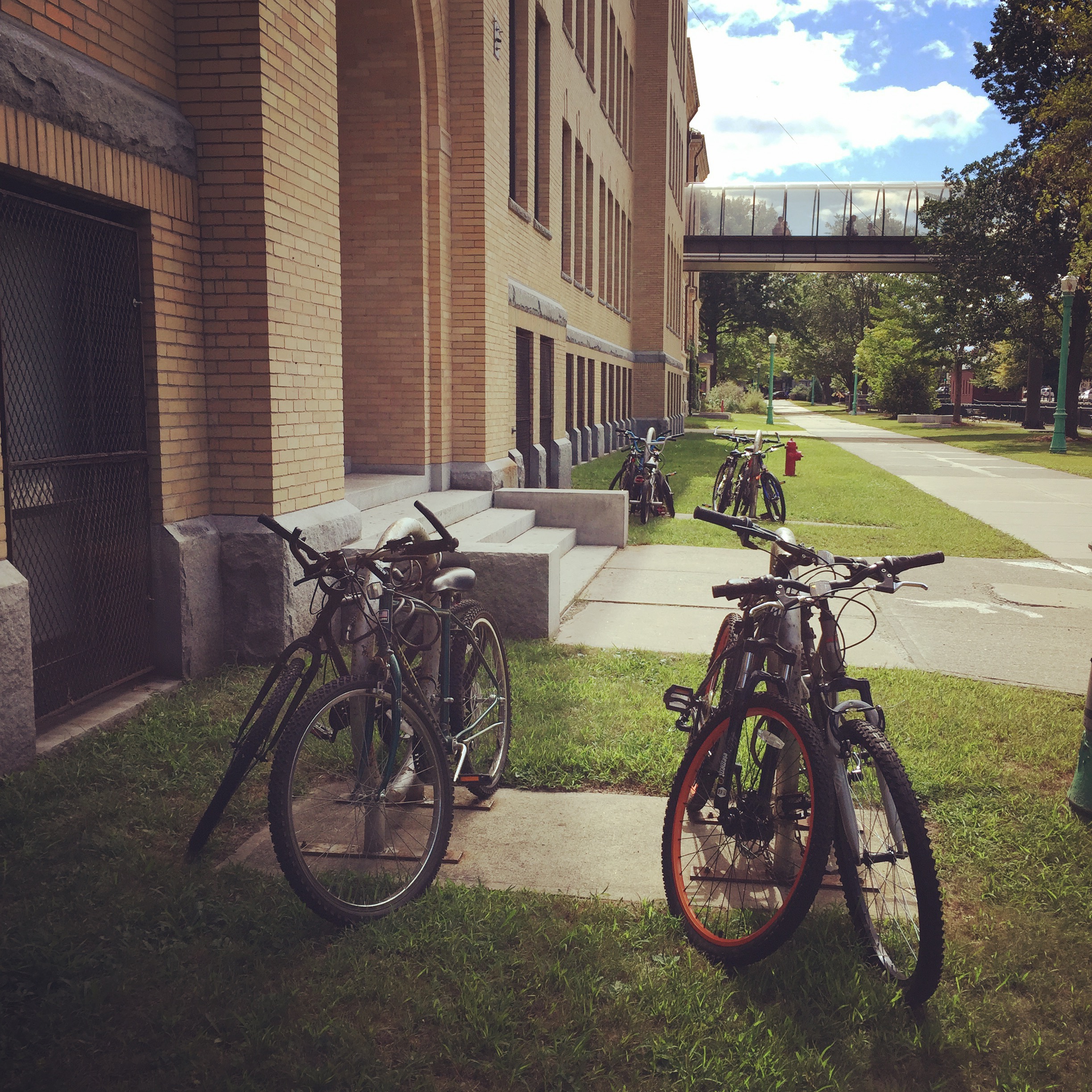 All presentThis was a lengthy (2-3/4 hours) meeting due to not only the summer schedule of monthly meetings, but the financial topics that became the focus of discussion. Apologies in advance for the delay in getting notes out; I also presented information about First Book to the Committee (separate post to follow).Permissions to EnterContract ratifications for the Superintendent and Assistant Superintendents were deferred to Executive Session, which followed the public portion this meeting.Subcommittee Reports:Mr. Gendron shared findings from the Facilities Subcommittee meeting of 8/11. The recommendation, followed by full School Committee approval, to name the Butler School Auditorium in honor of former administrator Mary Alice Foley was made. (Approved). Additionally Skanska, the Project Manager for the Lowell High School Building Project, presented a quarterly report of the work thus far and listed deadlines and timeline for the projected planning work needed to be accomplished ahead of a May 31, 2017 Mass. School Building Deadline.While I understood this to be a huge construction project for the City of Lowell, I was unaware that the LHS Building Project is the largest school building project in the Commonwealth. There is a need to get the design “right” (sustainable with adaptability for future needs projected 20-30 years out) and to ensure that the costs are under control throughout all phases of the project. The Project Manager, Skanska, is charged with this task and will work with the design team. To view the timeline for the work that is envisioned, Sanska has provided details beginning around page 73 of the
All presentThis was a lengthy (2-3/4 hours) meeting due to not only the summer schedule of monthly meetings, but the financial topics that became the focus of discussion. Apologies in advance for the delay in getting notes out; I also presented information about First Book to the Committee (separate post to follow).Permissions to EnterContract ratifications for the Superintendent and Assistant Superintendents were deferred to Executive Session, which followed the public portion this meeting.Subcommittee Reports:Mr. Gendron shared findings from the Facilities Subcommittee meeting of 8/11. The recommendation, followed by full School Committee approval, to name the Butler School Auditorium in honor of former administrator Mary Alice Foley was made. (Approved). Additionally Skanska, the Project Manager for the Lowell High School Building Project, presented a quarterly report of the work thus far and listed deadlines and timeline for the projected planning work needed to be accomplished ahead of a May 31, 2017 Mass. School Building Deadline.While I understood this to be a huge construction project for the City of Lowell, I was unaware that the LHS Building Project is the largest school building project in the Commonwealth. There is a need to get the design “right” (sustainable with adaptability for future needs projected 20-30 years out) and to ensure that the costs are under control throughout all phases of the project. The Project Manager, Skanska, is charged with this task and will work with the design team. To view the timeline for the work that is envisioned, Sanska has provided details beginning around page 73 of the 
 Sometimes what appears to be an inventive solution to a time-consuming problem slips into place without the thorough scrutiny that it needs. Enter Exhibit 1:
Sometimes what appears to be an inventive solution to a time-consuming problem slips into place without the thorough scrutiny that it needs. Enter Exhibit 1: 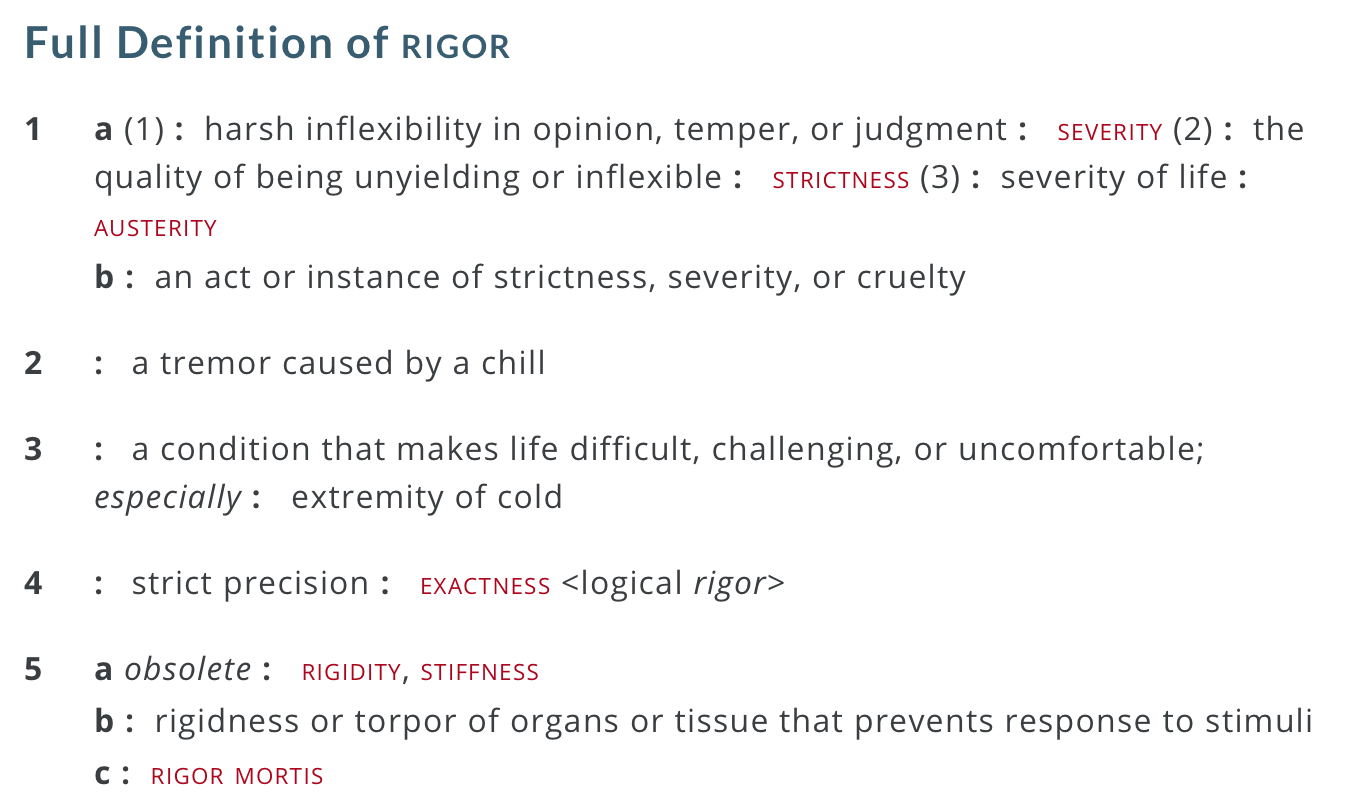
 All presentMeeting once a month instead of twice means that monthly meeting is extra long – this one was 3 hours without the Executive Session. Next meeting will also be on the Committee’s Summer Schedule on August 17.Motions2016/287, 2016/288, 2016/289, 2016/290 (Mayor Kennedy) All four motions requested reports from the Superintendent regarding Lowell High. The reports request will be to review curriculum needs and plan for curriculum in tangent the design of Lowell High. Since an architect has been selected and named, consideration of how the building is configured to address curricular needs is timely.Motion 289 requests a report in response to DESE’s recently published information naming Lowell’s expulsion and suspension rates (along with several other school districts). The DESE report and news release can be found
All presentMeeting once a month instead of twice means that monthly meeting is extra long – this one was 3 hours without the Executive Session. Next meeting will also be on the Committee’s Summer Schedule on August 17.Motions2016/287, 2016/288, 2016/289, 2016/290 (Mayor Kennedy) All four motions requested reports from the Superintendent regarding Lowell High. The reports request will be to review curriculum needs and plan for curriculum in tangent the design of Lowell High. Since an architect has been selected and named, consideration of how the building is configured to address curricular needs is timely.Motion 289 requests a report in response to DESE’s recently published information naming Lowell’s expulsion and suspension rates (along with several other school districts). The DESE report and news release can be found  Put yourself back in elementary school and imagine your reaction to a classmate calling you a name or hurting your feelings through action or word. Would you speak up or would you allow that hurt to fester and grow into something more significant? Would you feel listened to? And if you caused the hurt would you recognize it as such?In our adult conversation, do we listen - really listen - to each other even when the conversation is difficult? I am not so sure any more. Maybe what we adults could use is a refresher course in conflict resolution.Ruth Sidney Charmey, author of
Put yourself back in elementary school and imagine your reaction to a classmate calling you a name or hurting your feelings through action or word. Would you speak up or would you allow that hurt to fester and grow into something more significant? Would you feel listened to? And if you caused the hurt would you recognize it as such?In our adult conversation, do we listen - really listen - to each other even when the conversation is difficult? I am not so sure any more. Maybe what we adults could use is a refresher course in conflict resolution.Ruth Sidney Charmey, author of  Recently, the
Recently, the 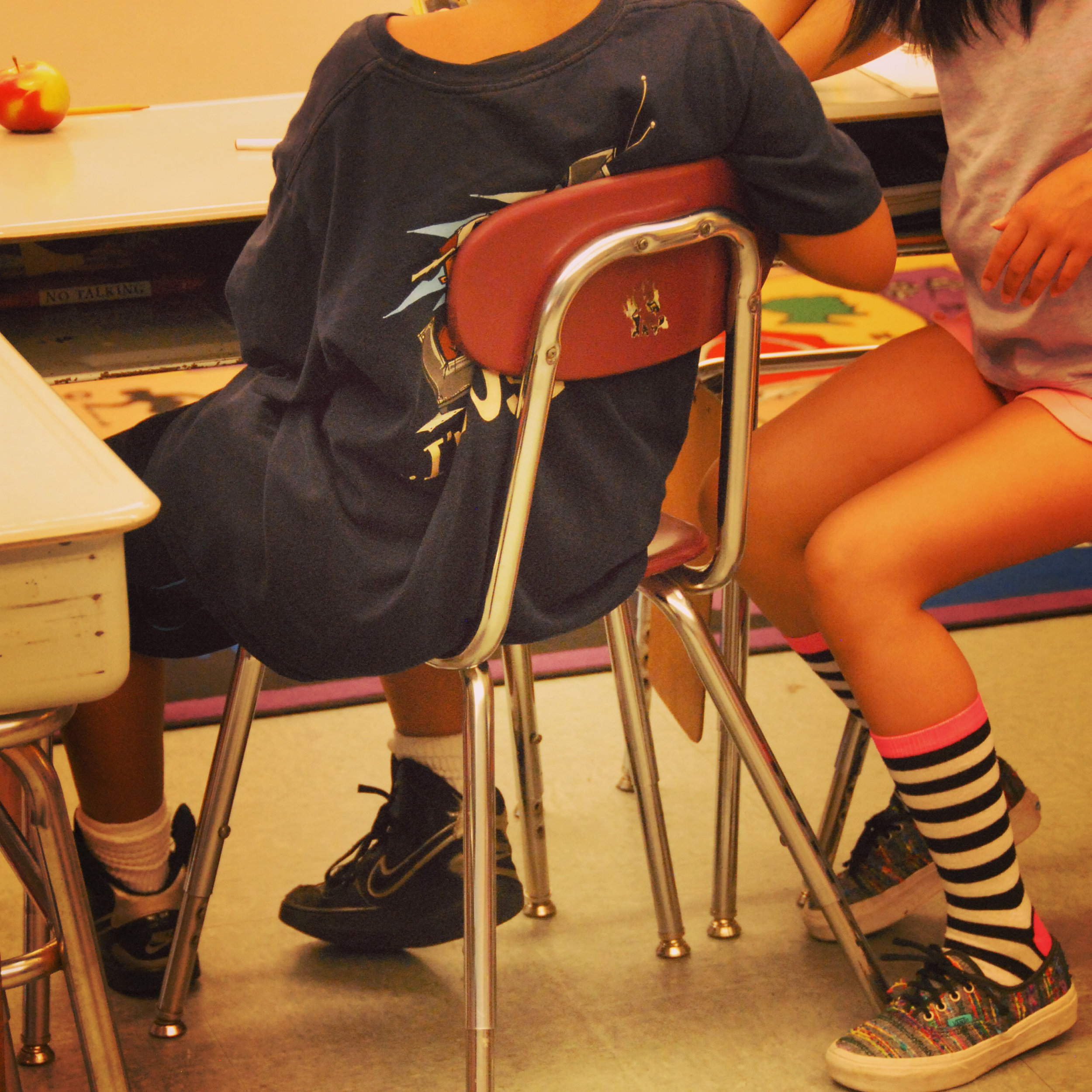 The New York Times carried an interesting story about Kansas conservatives and the effort to demonize education even further through
The New York Times carried an interesting story about Kansas conservatives and the effort to demonize education even further through  Baton Rouge. Minneapolis. Dallas.If there is any doubt that this is a messed up world, the last 2 days should clear that up. It is undeniable that we live at a crossroads of how we, all of us, mean to treat each other.My childhood straddled the Civil Rights movement. In 1963 when Martin Luther King stood on the steps of the of the Lincoln Memorial, I was 11 years old. That speech, made 53 years ago in August, spoke of the "promissory note to which every American was to fall heir". I reread
Baton Rouge. Minneapolis. Dallas.If there is any doubt that this is a messed up world, the last 2 days should clear that up. It is undeniable that we live at a crossroads of how we, all of us, mean to treat each other.My childhood straddled the Civil Rights movement. In 1963 when Martin Luther King stood on the steps of the of the Lincoln Memorial, I was 11 years old. That speech, made 53 years ago in August, spoke of the "promissory note to which every American was to fall heir". I reread  I never worried about what fate my father or brother or husband or son might meet with doing ordinary errands. People don't, as a rule, lock their car doors when I walk nearby, nor does the conversation stop when I enter a store. So as far as understanding what it means to beof color and living in the United States, I cannot possibly understand the depth of hurt and resentment and anger. But I can do something.
I never worried about what fate my father or brother or husband or son might meet with doing ordinary errands. People don't, as a rule, lock their car doors when I walk nearby, nor does the conversation stop when I enter a store. So as far as understanding what it means to beof color and living in the United States, I cannot possibly understand the depth of hurt and resentment and anger. But I can do something. Whether someone looks the same or different from me, I can look that person in the eyeand smile. I can nod and say hello. I can be more mindful of the subtle speech that telegraphs cultural and racial differences and take care to object to generalities. I can stand strongly against those politicians who would use the language of intolerance to garner votes.We are at a clear crossroads and it is time for some introspection into the kind of world we want to live in.
Whether someone looks the same or different from me, I can look that person in the eyeand smile. I can nod and say hello. I can be more mindful of the subtle speech that telegraphs cultural and racial differences and take care to object to generalities. I can stand strongly against those politicians who would use the language of intolerance to garner votes.We are at a clear crossroads and it is time for some introspection into the kind of world we want to live in.  Yesterday's New York Times carried the story of America's failure to educate students.
Yesterday's New York Times carried the story of America's failure to educate students. 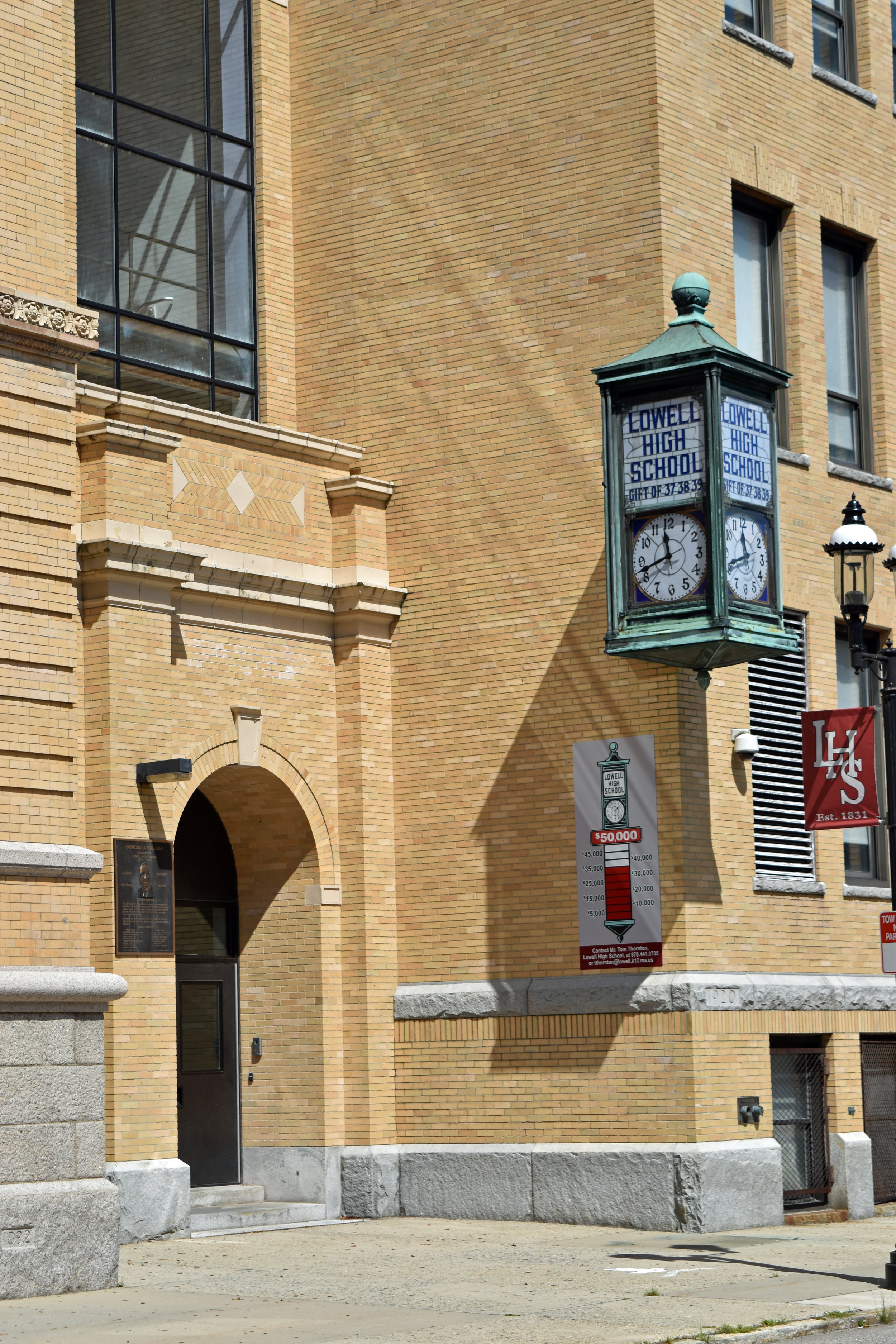 5 present, Mr. Gendron absentThis meeting agenda was packed as the School Committee goes on summer meeting schedules (once each month, 3rd Wednesday) for July and August. After 3 1/2 hours, the Committee also went in to Executive Session for purposes of administrative salary/contract updates (principals, assistant superintendent, superintendent) and salary increases for unaffiliated employees (otherwise not part of a negotiating group). Special Order of BusinessPresentation and public hearing regarding the transformation of LHS Career Academy into an Innovation School. Passes (6 yea, 1 absent) with supportive statements for staff and from UTL.The designation “innovation school”, like a “Horace Mann” school is for schools that are chartered, but still under local control in funding and governance. This is a huge distinction from Commonwealth Charter Schools such as LCCPS and Lowell Collegiate. Both of these schools receive public funding on a per pupil basis but are not governed or answerable to municipal school boards. The innovation school fills a need to continue to reach out to some of our most needy and disenfranchised students with a unique and creative program that will remain under governance of the Lowell Public Schools.Unfinished Business2016/246 transfers of money - sounded as if it mainly was to expend Circuit Breaker funds so that this funding source was trimmed to the allowable limit. Through 3 transfers, the district will be enabled to purchase additional laptop carts (1 cart per grade level per school) and to fund furnishing for the additional Grade 5 classrooms needed to accommodate the bubble at the Middle School.2016/247 Cost of Education for Children Out of District. The amount presented $129,610 is estimated for 2015-16 (final year-end numbers available after financials close in July).Dr. Khelfaoui states that while this number is not for 2016-17, he anticipates the expense for educating 36 OOD students will be “flat” - marginally changed up or down as the number of students will remain the same, just the grade level changing. When questioned as to meeting legalities according to state law regarding students who may also be out-of-state, Dr. Khelfaoui notes that the district can choose to accept such students but that there is no reimbursement from Commonwealth and that the OOD students who also live out-of-state cannot be included in student headcount for purposes of budgeting/funding.Public ParticipationJonathan Richmond, of TAKEOFF Space, an entity formed to encourage talented low-income students to apply to prestigious colleges reads statement relative to the rejection of his proposal for Lowell High students.Laura Ortiz, parent, advocating for more precise and inclusive language in Student Handbook which would include anaphalaxis prevention and procedures/safeguards for all students, not just those specifically hypersensitive to food allergies.Laura Ortiz, parent, advocating that when addressing rezoning, or return to neighborhood schools, that the Committee carefully consider the impact of any attempts to lift the desegragation order. Mr. Gignac clarified his position as looking at rezoning within the context of the desgregation order yet exploring whether some adjustments might be made to address transportation issues/costs and middle school population explosion.Motions2016/251 (Mr, Gignac) report on class sizes for 2016-17. (Note, during discussion of Online Waitlist, Mr. John Descoteaux reports that 56 students are committed to STEM Grade 5 for next year and 11 will be on a waitlist. This effectively ensures that the large Grade 5 class sizes warned about during budget hearings will no longer be a concern).2016/252 (Mr. Gignac) Request superintendent investigate the feasibility of rezoning (see note under Public Participation).2016/254 (Mr. Gignac) report on facility repairs and improvement projects scheduled for this summer.2016/262 (Mr. Hoey) creation of an Early Candidate pool (amended to referral to Personnel Subcommittee).Reports of the SuperintendentThere were 14 reports from the Superintendent ranging from status update on the Massachusetts Teacher Evaluation System to a thorough vetting of updates to School Handbooks.2016/236 Massachusetts Teacher Evaluation update. Follows DESE protocols for evaluations; most are completed including the evaluations of school-wide and district staff. Report to follow (aggregated) in July.2016/260 Washington School. Principal Cheryl Cunningham and her team present what makes this school unique, special and successful. Great presentation on the importance of character education to students.2016/264 Cultural Competency. Along with Head of School Brian Martin, very impressive presentation by Lowell High students explaining the efforts of this group to examine LHS culture in the aftermath of last fall’s racial incident.2016/265 Parent Handbooks LHS changes explained by Dr. Howe; similar changes presented by Ms. Durkin. In light of Parent Laura Ortiz’s suggestions, Ms. Durkin to meet with Health Department.2016/241 Online Waitlist. Parents will be able to look up waitlist status as long as they know their child’s LASID number. Most students know this from memory already as it is used for lunch check-in. Lookups by LASIDs should be quite easy to do and the waitlist will be more transparent to all. More important, the District has a well thought-out plan to check periodically with families to see if they wish to remain on the wait list for a school. Sometimes a child may be placed in a school that was not among the family's listed choices, yet it became a good fit -- and in that case, the wait list entry is moot. 2016/268 Lowell Career Academy Innovation Plan2016/263 Task force planned to address student growth. To convene in early Fall 2016.2016/243 Legal consult (re OOD children). Attorney Hall is working with prior documentation of how/when OOD students were placed in Lowell Schools in preparation for offering legal opinion.2016/259 Report of what civics curriculum materials and programs used in schools.2016/261 STEM efforts at the High School2016/262 All principals have been contacted about school materials ordered for 2016-172016/267 Nondiscrimination on basis of gender identity2016/238 and 2016/239 List of eligible teachers and personnel reportNew BusinessItems accepted and voted favorably include purchases of new food service equipment, financial statements, and 2 donations from the District Attorney’s Office and the Lowell Police Department ($1,000 each).2016/244 Charter School Resolution was formally voted upon. Lowell will join other school districts and the Lowell City Council in support of keeping the current cap on Charter School seats. Mayor Kennedy reports the City Council unanimously voted on a similar motion during last Tuesday's meeting.In my opinion, there are many reasons for insisting on this. The state legislature habitually underfunds the charter school reimbursement account for municipalities. In Lowell, there is a shortfall of over $1.5 million dollars caused by this underfunding - which means that some municipal program is cut or short-funded so that the money assessed the City for charter school students is paid in full. There are many other issues of governance and accountability that divide public schools from Commonwealth Charter Schools. I would urge every voter and taxpayer in Lowell to become familiar with those issues as there will be a ballot initiative question in November.Prior to going to Executive Session, Claire Abrams, Assistant Superintendent, was recognized for her 41 years of service to the Lowell Schools. Claire has been a driving force, particularly in Mathematics, which is where I first met her. With a soft-spoken, calm manner, she has lead many curriculum efforts in Lowell., not the least being toward a mathematics curriculum that is cutting edge. Claire, it was a rare privilege to work with and for you. Your thoughtful leadership will be missed. But you are going to LOVE retirement!Meeting adjourned from Executive Session. Meeting Packet can be found
5 present, Mr. Gendron absentThis meeting agenda was packed as the School Committee goes on summer meeting schedules (once each month, 3rd Wednesday) for July and August. After 3 1/2 hours, the Committee also went in to Executive Session for purposes of administrative salary/contract updates (principals, assistant superintendent, superintendent) and salary increases for unaffiliated employees (otherwise not part of a negotiating group). Special Order of BusinessPresentation and public hearing regarding the transformation of LHS Career Academy into an Innovation School. Passes (6 yea, 1 absent) with supportive statements for staff and from UTL.The designation “innovation school”, like a “Horace Mann” school is for schools that are chartered, but still under local control in funding and governance. This is a huge distinction from Commonwealth Charter Schools such as LCCPS and Lowell Collegiate. Both of these schools receive public funding on a per pupil basis but are not governed or answerable to municipal school boards. The innovation school fills a need to continue to reach out to some of our most needy and disenfranchised students with a unique and creative program that will remain under governance of the Lowell Public Schools.Unfinished Business2016/246 transfers of money - sounded as if it mainly was to expend Circuit Breaker funds so that this funding source was trimmed to the allowable limit. Through 3 transfers, the district will be enabled to purchase additional laptop carts (1 cart per grade level per school) and to fund furnishing for the additional Grade 5 classrooms needed to accommodate the bubble at the Middle School.2016/247 Cost of Education for Children Out of District. The amount presented $129,610 is estimated for 2015-16 (final year-end numbers available after financials close in July).Dr. Khelfaoui states that while this number is not for 2016-17, he anticipates the expense for educating 36 OOD students will be “flat” - marginally changed up or down as the number of students will remain the same, just the grade level changing. When questioned as to meeting legalities according to state law regarding students who may also be out-of-state, Dr. Khelfaoui notes that the district can choose to accept such students but that there is no reimbursement from Commonwealth and that the OOD students who also live out-of-state cannot be included in student headcount for purposes of budgeting/funding.Public ParticipationJonathan Richmond, of TAKEOFF Space, an entity formed to encourage talented low-income students to apply to prestigious colleges reads statement relative to the rejection of his proposal for Lowell High students.Laura Ortiz, parent, advocating for more precise and inclusive language in Student Handbook which would include anaphalaxis prevention and procedures/safeguards for all students, not just those specifically hypersensitive to food allergies.Laura Ortiz, parent, advocating that when addressing rezoning, or return to neighborhood schools, that the Committee carefully consider the impact of any attempts to lift the desegragation order. Mr. Gignac clarified his position as looking at rezoning within the context of the desgregation order yet exploring whether some adjustments might be made to address transportation issues/costs and middle school population explosion.Motions2016/251 (Mr, Gignac) report on class sizes for 2016-17. (Note, during discussion of Online Waitlist, Mr. John Descoteaux reports that 56 students are committed to STEM Grade 5 for next year and 11 will be on a waitlist. This effectively ensures that the large Grade 5 class sizes warned about during budget hearings will no longer be a concern).2016/252 (Mr. Gignac) Request superintendent investigate the feasibility of rezoning (see note under Public Participation).2016/254 (Mr. Gignac) report on facility repairs and improvement projects scheduled for this summer.2016/262 (Mr. Hoey) creation of an Early Candidate pool (amended to referral to Personnel Subcommittee).Reports of the SuperintendentThere were 14 reports from the Superintendent ranging from status update on the Massachusetts Teacher Evaluation System to a thorough vetting of updates to School Handbooks.2016/236 Massachusetts Teacher Evaluation update. Follows DESE protocols for evaluations; most are completed including the evaluations of school-wide and district staff. Report to follow (aggregated) in July.2016/260 Washington School. Principal Cheryl Cunningham and her team present what makes this school unique, special and successful. Great presentation on the importance of character education to students.2016/264 Cultural Competency. Along with Head of School Brian Martin, very impressive presentation by Lowell High students explaining the efforts of this group to examine LHS culture in the aftermath of last fall’s racial incident.2016/265 Parent Handbooks LHS changes explained by Dr. Howe; similar changes presented by Ms. Durkin. In light of Parent Laura Ortiz’s suggestions, Ms. Durkin to meet with Health Department.2016/241 Online Waitlist. Parents will be able to look up waitlist status as long as they know their child’s LASID number. Most students know this from memory already as it is used for lunch check-in. Lookups by LASIDs should be quite easy to do and the waitlist will be more transparent to all. More important, the District has a well thought-out plan to check periodically with families to see if they wish to remain on the wait list for a school. Sometimes a child may be placed in a school that was not among the family's listed choices, yet it became a good fit -- and in that case, the wait list entry is moot. 2016/268 Lowell Career Academy Innovation Plan2016/263 Task force planned to address student growth. To convene in early Fall 2016.2016/243 Legal consult (re OOD children). Attorney Hall is working with prior documentation of how/when OOD students were placed in Lowell Schools in preparation for offering legal opinion.2016/259 Report of what civics curriculum materials and programs used in schools.2016/261 STEM efforts at the High School2016/262 All principals have been contacted about school materials ordered for 2016-172016/267 Nondiscrimination on basis of gender identity2016/238 and 2016/239 List of eligible teachers and personnel reportNew BusinessItems accepted and voted favorably include purchases of new food service equipment, financial statements, and 2 donations from the District Attorney’s Office and the Lowell Police Department ($1,000 each).2016/244 Charter School Resolution was formally voted upon. Lowell will join other school districts and the Lowell City Council in support of keeping the current cap on Charter School seats. Mayor Kennedy reports the City Council unanimously voted on a similar motion during last Tuesday's meeting.In my opinion, there are many reasons for insisting on this. The state legislature habitually underfunds the charter school reimbursement account for municipalities. In Lowell, there is a shortfall of over $1.5 million dollars caused by this underfunding - which means that some municipal program is cut or short-funded so that the money assessed the City for charter school students is paid in full. There are many other issues of governance and accountability that divide public schools from Commonwealth Charter Schools. I would urge every voter and taxpayer in Lowell to become familiar with those issues as there will be a ballot initiative question in November.Prior to going to Executive Session, Claire Abrams, Assistant Superintendent, was recognized for her 41 years of service to the Lowell Schools. Claire has been a driving force, particularly in Mathematics, which is where I first met her. With a soft-spoken, calm manner, she has lead many curriculum efforts in Lowell., not the least being toward a mathematics curriculum that is cutting edge. Claire, it was a rare privilege to work with and for you. Your thoughtful leadership will be missed. But you are going to LOVE retirement!Meeting adjourned from Executive Session. Meeting Packet can be found  In theory, I enjoy the idea of travel. In reality, I miss my "stuff". And knowing precisely where everything is.There is nothing like 24 hours in airports and planes and a 6-hour time zone change to turn even the most Pollyanna-ish of us into raging maniacs of intolerance for humanity. And that is especially true if you have to connect to anyplace through LAX.
In theory, I enjoy the idea of travel. In reality, I miss my "stuff". And knowing precisely where everything is.There is nothing like 24 hours in airports and planes and a 6-hour time zone change to turn even the most Pollyanna-ish of us into raging maniacs of intolerance for humanity. And that is especially true if you have to connect to anyplace through LAX. But the physical - and mental - discomfort of getting to and from a new place is not where the value of travel can be found. The value of travel, for me, is found in a new sense of understanding.Speaking for myself, as much as I want to try to fit in - to have that truly locally inspired experience - it will be quite easy to spot me as a visitor. While it can be exhilarating to break away from the familiar, it is disconcerting. Learning to negotiate my environment when it is unfamiliar has a rather steep learning curve fraught with opportunities to look idiotic. Try asking for postage in French. Or coffee in London ("you takin'?") .
But the physical - and mental - discomfort of getting to and from a new place is not where the value of travel can be found. The value of travel, for me, is found in a new sense of understanding.Speaking for myself, as much as I want to try to fit in - to have that truly locally inspired experience - it will be quite easy to spot me as a visitor. While it can be exhilarating to break away from the familiar, it is disconcerting. Learning to negotiate my environment when it is unfamiliar has a rather steep learning curve fraught with opportunities to look idiotic. Try asking for postage in French. Or coffee in London ("you takin'?") . Whether it is learning that my northeastern compulsion to life's pace, or aggressive driving, or whatever it is in my daily life that drives me, building more understanding of someone or something different for me comes from travel. This time around I learned that frozen concoctions are indeed delicious breakfast foods. And pineapple juice and champagne do indeed go together.So along with those magnificent views, beautiful sunsets and sunrises, I hope I've learned, absorbed, and maybe take a bit of understanding what once was unfamiliar back with me.
Whether it is learning that my northeastern compulsion to life's pace, or aggressive driving, or whatever it is in my daily life that drives me, building more understanding of someone or something different for me comes from travel. This time around I learned that frozen concoctions are indeed delicious breakfast foods. And pineapple juice and champagne do indeed go together.So along with those magnificent views, beautiful sunsets and sunrises, I hope I've learned, absorbed, and maybe take a bit of understanding what once was unfamiliar back with me.

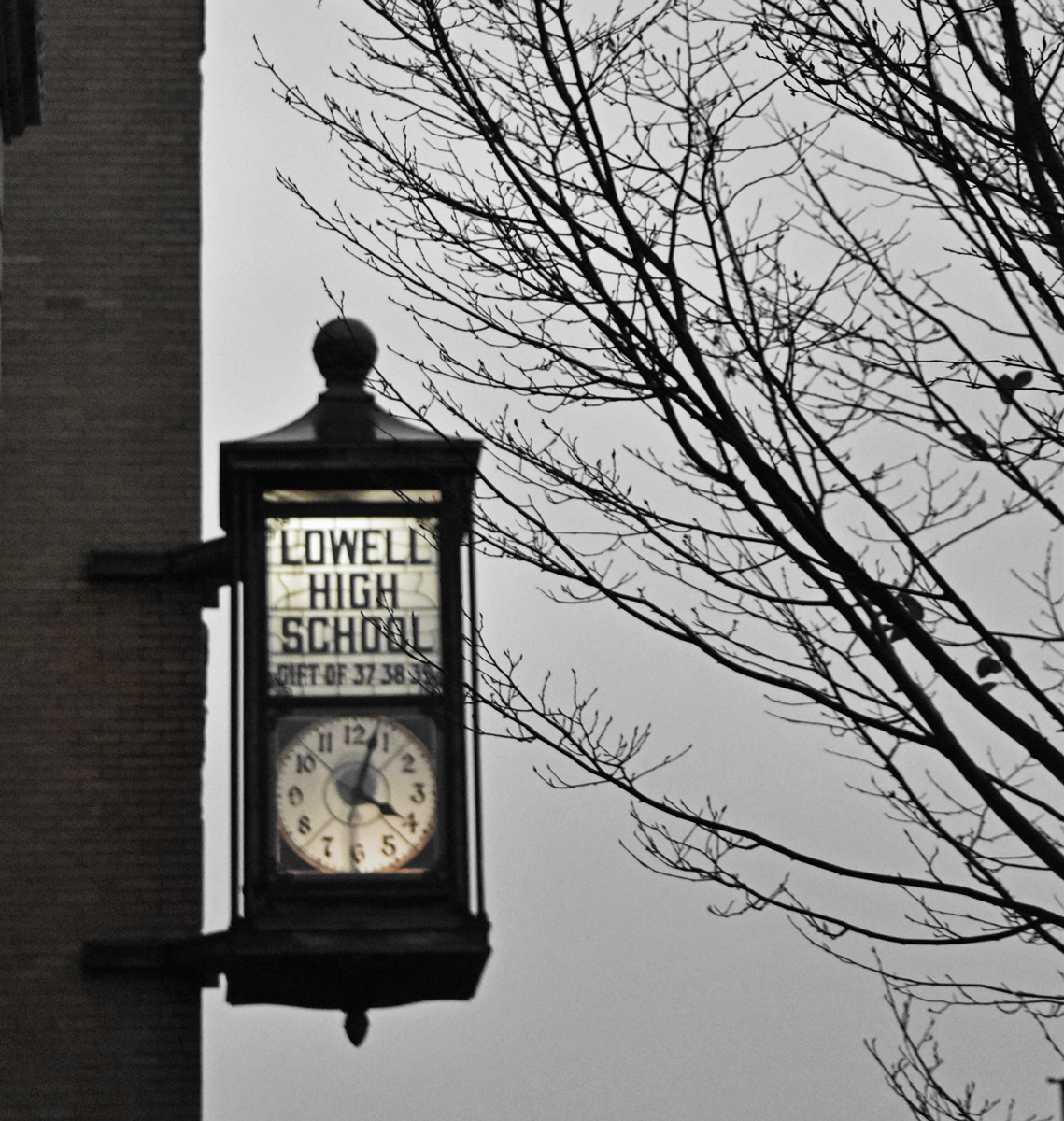 Between Tuesday’s City Council Meeting and Wednesday’s School Committee Meeting, Mayor Kennedy has done a yeoman’s job of navigating through some very highly charged Public Comment sessions.The agenda included a Public Hearing on Inter-District School Choice which quickly morphed into comment on Item 10, the Policy Subcommittee’s Report of Monday, May 16, 2016.Special Order of BusinessMayor Kennedy mentions there are 10 speakers registered to speak about Item 2016/134, Inter-District School Choice; however, after the first speaker, it was pointed out to him by Robert Gignac that many of the speakers were here to advocate for/against the policy of allowing out-of-district children of Lowell Public School staff to be educated by the Lowell Schools. I would urge anyone interested in both sides of this issue to find the
Between Tuesday’s City Council Meeting and Wednesday’s School Committee Meeting, Mayor Kennedy has done a yeoman’s job of navigating through some very highly charged Public Comment sessions.The agenda included a Public Hearing on Inter-District School Choice which quickly morphed into comment on Item 10, the Policy Subcommittee’s Report of Monday, May 16, 2016.Special Order of BusinessMayor Kennedy mentions there are 10 speakers registered to speak about Item 2016/134, Inter-District School Choice; however, after the first speaker, it was pointed out to him by Robert Gignac that many of the speakers were here to advocate for/against the policy of allowing out-of-district children of Lowell Public School staff to be educated by the Lowell Schools. I would urge anyone interested in both sides of this issue to find the